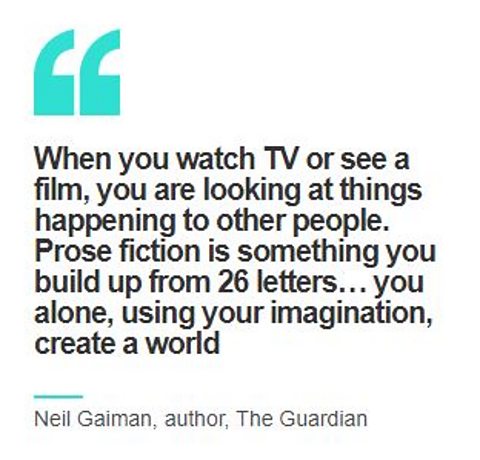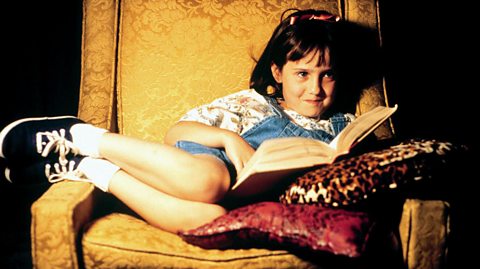Are you sitting comfortably?
We live in an age where we can spend hours bingeing on TV box sets or surfing social media. But despite these distractions, reading remains a popular pastime.
There's still a huge market for novels, with bestsellers like Paula Hawkins’ thriller The Girl on the Train able to sell around half a million copies in a year in the UK alone.
We know that reading is good for us as it improves our literacy, but what other benefits does it offer?
Characters we love, or love to hate
Intriguing characters can often hook us into a story, but reading helps us to develop our own ideas and personalities as we compare our reactions and beliefs to those in the story.
Click or tap below to discover more.

Hidden health benefits
But reading does more than just help us to learn about our own personalities. It’s good for our health, too.
Studies show that it can increase our emotional intelligence as we understand a range of perspectives and motivations.
There is some evidence that mental stimulation is one of the factors that can delay the onset of dementia and reading is among the activities that can help to keep the brain active. It is far from a passive pastime. When we read we create mental simulations of the activities, sights and sounds of scenes in a story, blending these with our own memories and experiences, all of which stimulates the neural pathways.
As well as this, research suggests that reading for 30 minutes a week increases health and wellbeing. Reading for pleasure has been found to improve our confidence and self-esteem, providing the grounding we need to pursue our goals and make life decisions. It can also aid our sleep and reduce feelings of loneliness.
To the onlooker, reading can appear to be a solitary and passive activity. But the simple act of picking up a book can do us a world of good.


Armchair education
Of course, reading is also a great way of taking you to a new world.
We could read historical accounts about the Napoleonic Wars or Victorian workhouses, but they would not captivate us in the way War and Peace or Oliver Twist does.
We can watch these stories unfold in film and TV adaptations, but when we read them instead we actively engage with the subject, characters and surroundings.
So although our primary motivation for turning the pages might be escapism and relaxation, we are actually learning and broadening our knowledge, even if we don't realise that's happening.

Learn more about this topic:
Why is a dose of Roald Dahl so good for my kids? document
From Oompa-Loompas to Matilda and the BFG; Michael Rosen on why Roald Dahl’s remarkable literary inventions are so important for our kids.

How did Arthur Conan Doyle create the character of Sherlock Holmes? video
Andrew Marr investigates how Arthur Conan Doyle first created the unforgettable character of Sherlock Holmes, back in 1887.

Comedy and tragedy in Great Expectations. video
Tony Jordan investigates aspects of Charles Dickens’ life during the writing of Great Expectations between 1860 and 1861.
